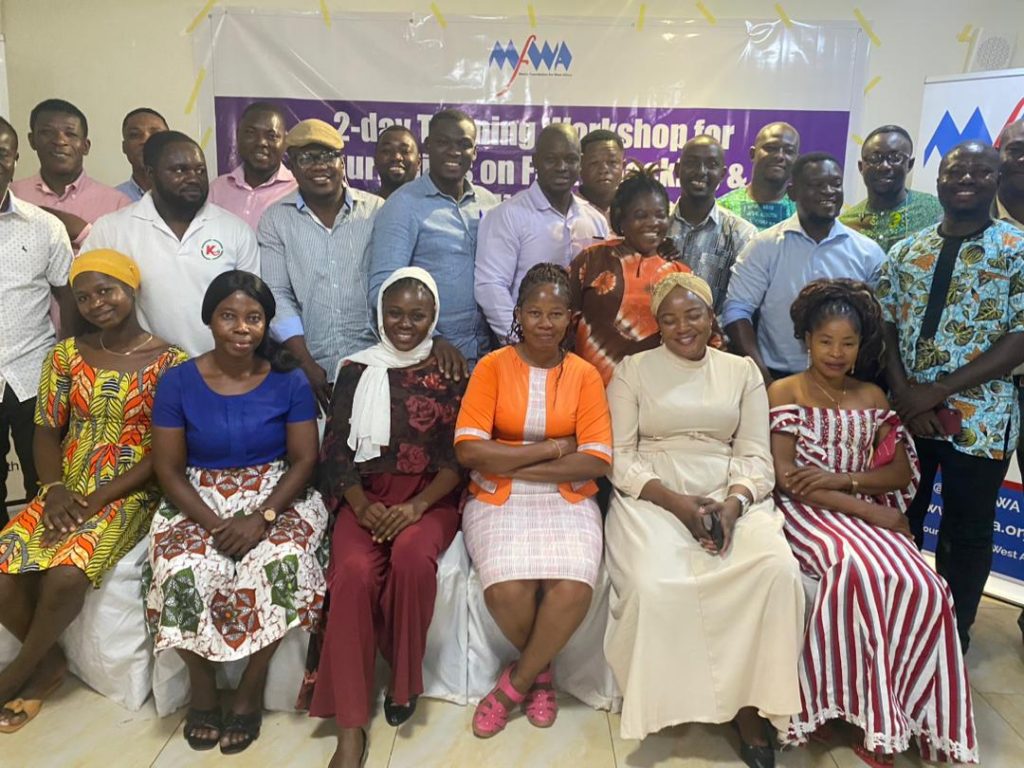
The Media Foundation for West Africa has organised a two day training workshops for about 125 journalists across Ghana on Fact Checking and countering Mis-Disinformation.
In recent times, many social media users and content creators have resorted to the use of social media and mainstream media usually in the form of satirical news, fabricated news items, manipulated photography, false press releases, fake news, to misinform and disinform the public for a targeted goal.
The rise in social media users and content creators using social media and mainstream media to spread false news have attracted conversations about its dangers and the possibility of polluting the public sphere and damage our democracy. This constitute one of the greatest threat to democracy, journalism and freedom of expression..
To counter the rise of fake or false news with its attendant dangers, the Media Foundation for West Africa with funding support from the foreign Commonwealth and Development Office, organised a two day training workshops for some selected journalists on Fact Checking and countering disinformation in Ghana.
At the plush Nim Avenue Hotel in Tamale, Mr. Paul Gozo, a staff of Media Foundation for West Africa in an interview with participants of the workshop ,explained that the purpose of the training is to equip journalists on how to detect false news and to counter dis-misinformarion.
“So we want to update the skills of our journalists in helping to fact checking the claims and helping to identify such claims that has the propensity of disinforming the public which stand to have an impact on our peace and security. “
He added that the problems of misinformation is not particularly to Ghana but the whole of Africa and the world in general “Misinformation is very very serious, not only in this country but all over the world. Misinformation has caused great harm to not only citizens but to government. “
Mr. Stephen Tindi, a lecturer at the University of Media, Art and Culture, formerly Ghana Institute of Journalism, added that it is very necessary that citizens are equipped with the necessary skills to obtain, and analyse information effectively and to pass down the knowledge in its simplest form to other members of the larger society.
Mr. Timi said people spread false news with the intent to disinform for various reasons including monetising and gaining popularity. He cautioned media users to cross check information from credible media outlets to ascertain the credibility of such information before publishing or going on air with it.
” If you are unsure, don’t share and anytime you come across information ask yourself certain questions. the first is that what is the motivation of the sender of this information? if you suspect that that information is likely to inflame passion, please do not share. The other thing is that, can you find out if that information is true or false. Is there anyone or friend that you can fall on to find out? or can you check from another website that you think is credible media organisation to confirm the information?”
Participants were taken through some fact checking tools like: google reverse image, yandex, tineye, invid video verification, who posted what, hoaxy, truthnest, twitter advanced search.
By: Simon Agana Blessing/mywordfmonline.com